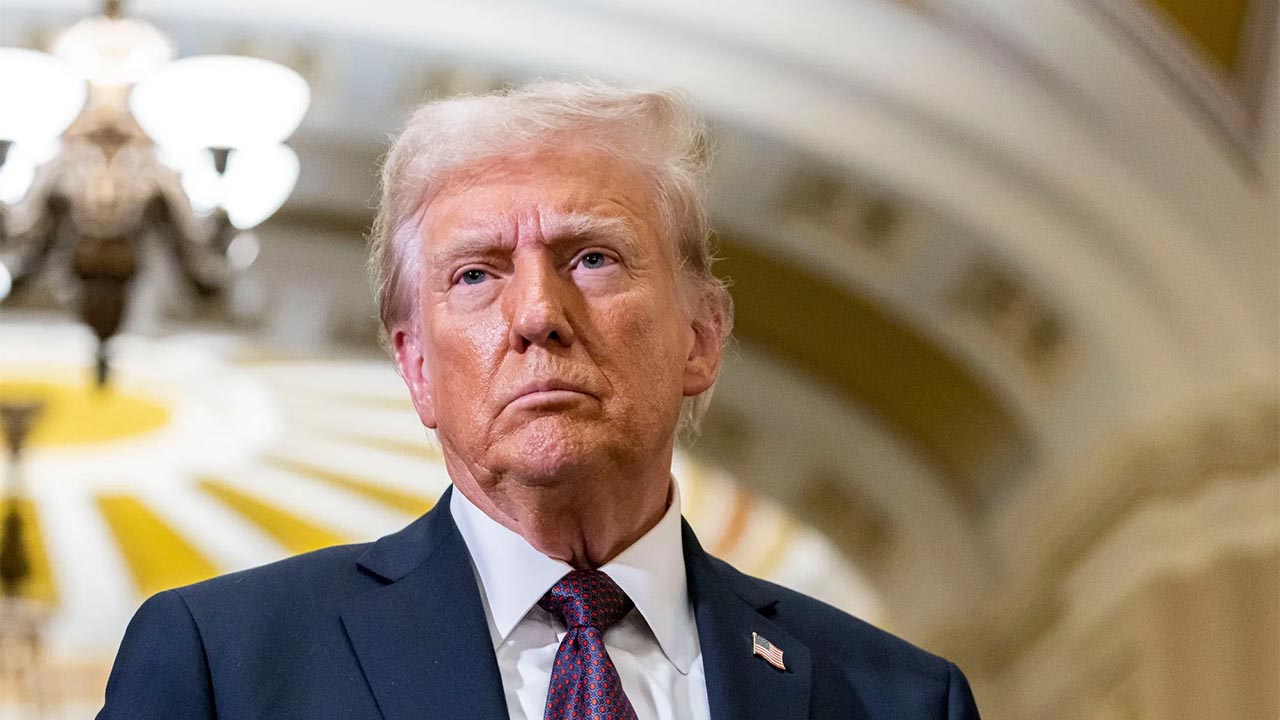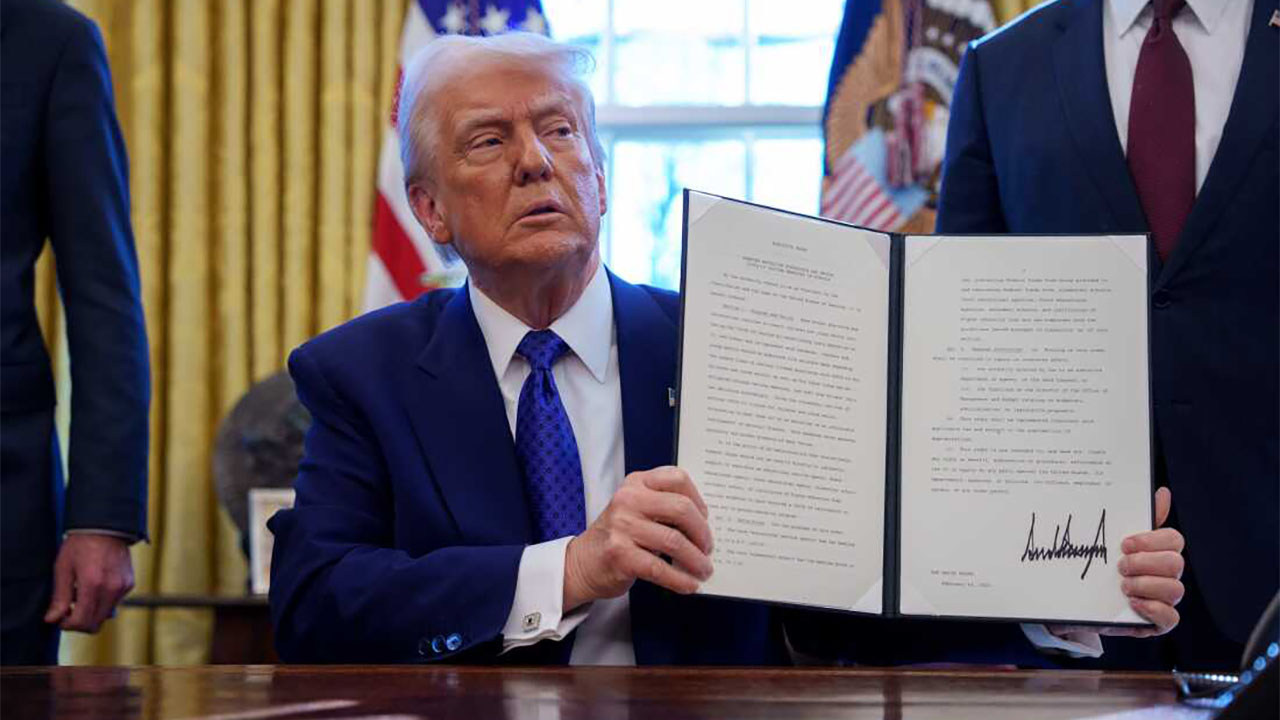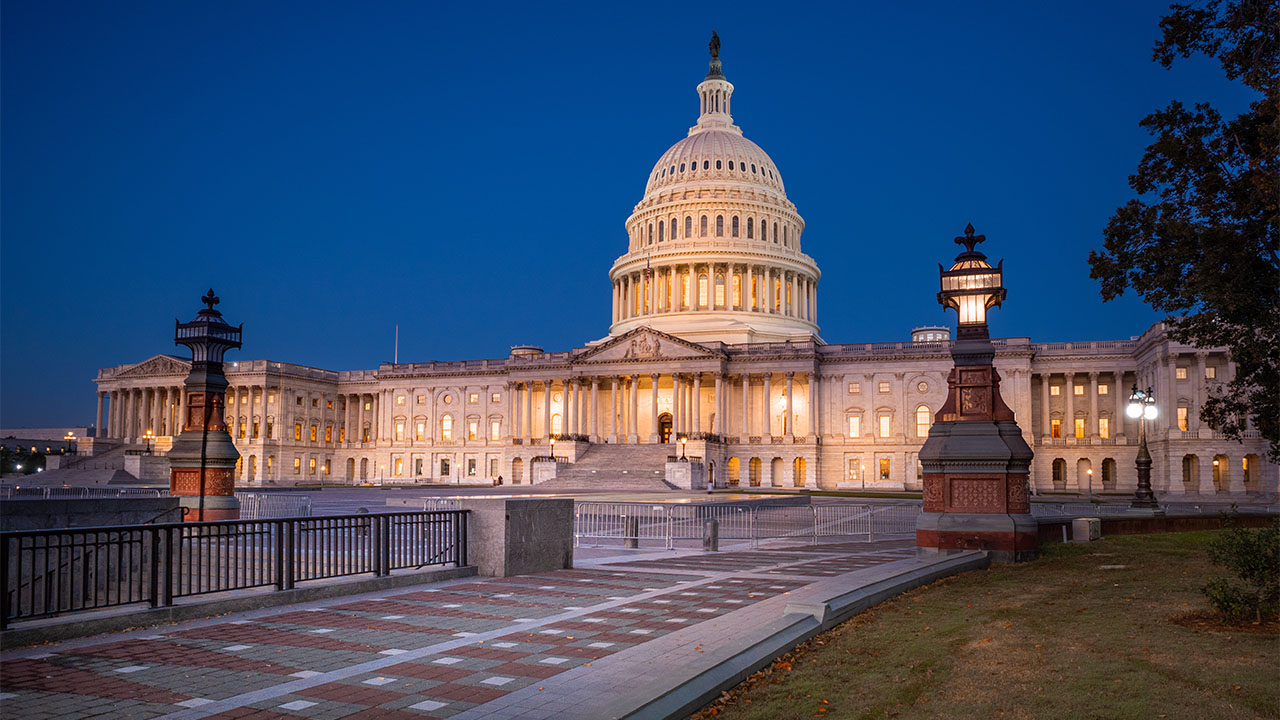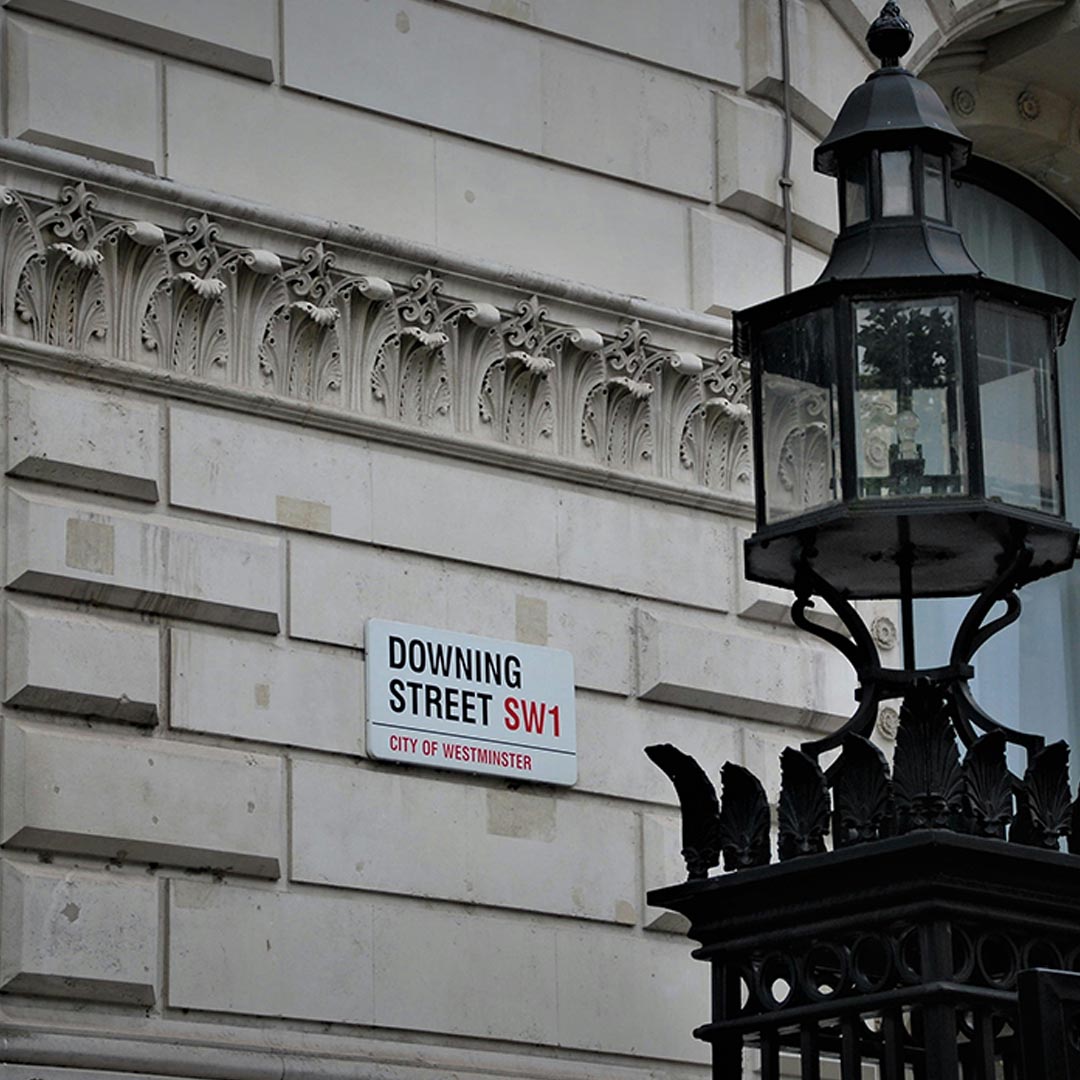Trump. You can’t take your eyes off him. Love him or hate him, he is political box office.
Last week saw Trump become the first US President to be afforded a second UK state visit, with two different monarchs no less. He flew into London on ‘Airforce One’ and then into the US ambassador’s pad via his helicopter ‘Marine One’, and then traveled around the UK capital in the vehicle known by officials as ‘Limousine One’ but widely dubbed ‘The Beast’ by reporters.
According to those in the know, in addition to comfortably seating the Commander in Chief and up to seven guests, the state car has stores of the president’s blood type for medical emergencies. Is hermetically sealed against chemical attacks, and features run flat tyres, night vision devices, smoke screen and oil slick deployment as defensive measures against attackers – James Bond eat your heart out.
Having created a suitable grandstand splash, the Donald then got down to business.
The three main objectives of his trip were realized. Generate stunning pictures which positioned him as the undisputed most important man, generate miles of news copy and hours of broadcast content, and finally make sure nobody is talking about anything other than him.
Mission accomplished, Trump got back on his presidential jet and headed home, throwing a few final barbed comments the way of London Mayor Sadiq Khan and others to make sure we were still talking about him even after he had left.
The Donald is #1, baby.
Contrast that with Britain’s leading politicians’ preparations for their big moment in the spotlight this week.
The great and good of the Labour Party will be in Liverpool to celebrate a first year back in power since 2010. But it will be nothing like the razzmatazz of Trump’s few days in the sun, more likely it will be characterized by the traditions of backbiting, demonstrations and power struggles between warring camps and factions.
PM Kier Starmer took the opportunity to try and smooth some of those troubled waters in advance by declaring Britain’s recognition of the state of Palestine. While that move is broadly supported and in line with the stated goal of a ‘Two State Solution’ to the mid-east crisis, I’m sure the timing is also about hoping to quell the noisy flag waving protestors who pop up at these events and gatherings.
Then there is the little matter of the Deputy Leadership. With Angela Rayner gone, the party is looking to select a replacement and while both of the candidates are competent and qualified for the role, many of the brothers and sisters in the movement aren’t happy with the process to select the next incumbent.
Not being happy with the process is a bit of a preoccupation for Labour and its conferences.
Huge rows break out about compositing – the process by which lots of similar ideas are huddled together to make one big idea – tempers flare over the order in which delegates are selected to speak, and a personal favourite, the habitual challenge to the conference chair about whether to go to a card vote over a show of hands.
Then there is the possibility of a challenge to the PM’s position. Rumours are flying that Andy Burnham, the Mayor of Manchester, might launch an audacious third attempt to lead the party having previously been thwarted by Ed Milliband and Jeremy Corbyn. The chatter is that he might swap places with Angela Rayner or replace suspended Andrew Gwynne for their Manchester seats, but Reform would likely romp home in either contest so there is much greater jeopardy than just fiddling the Labour candidate selection system.
Moreover, why would Kier Starmer bring his rival back to Westminster? While he remains stationed in the provincial regions, Octavian is no threat to Caesar.
You imagine that Starmer looks longingly across the Atlantic and wonders why he cant have the luck of Trump.
Donald has no party to please. He not only pays little attention to the whims and wishes of the millions of registered Republican Party members across the nation, he barely acknowledges the elected representatives from his party in Congress. The voters are his people.
Perhaps that is the answer? Who needs a mass membership political party in an age of retail politics?
A few weeks ago, Nigel Farage’s Reform Party hosted its inaugural conference in Birmingham and it was clear they won’t be doing that again in a hurry.
Currently, Farage enjoys an unhindered run at any issue he fancies. He has the eyes and ears of the print, online and broadcast media to say and do as he pleases.
Why, just to comply with political orthodoxy, would he want to be challenged by and accountable to a rabble of members? Reform is already set up as a business rather than a political party for tax purposes so why voluntarily burden yourself with the processes and peculiarities of managing one.
Why bother having members when supporters, followers and voters are the metrics which matter.
Trump has further crossed the rubicon, dispensing with the processes of collective law making almost entirely and relying on his powers to issue executive orders to get things done without the meddling of elected representatives.
He is banking on the idea that so long as he is pleasing the people, the politicians whose positions do require electoral support will stay in line with him rather than risk their jobs. That premise will be tested in the forthcoming midterm elections.
Trump’s ‘my way or the highway’ style isn’t for everyone. Clearly, it tramples over polite ideas of democracy and the will of the people. But it is proving popular.
Around the world, political leaders are becoming more autocratic, even where their constitutions don’t allow it. The rise of the far right in France and Germany, the ascent of populist parties in Portugal, Spain, Greece and the Netherlands are all built around personality. New parties are emerging, breaking with traditional power bases of trade unions, big businesses, churches and state institutions. Mass Membership is so last century.
So, we wait to see what unfolds in Liverpool this week, and in Manchester the week after when the remnants of the Tory Party gather there too. These might be the last examples of the mass membership conferences we are used to, but what would, could or should replace them?













